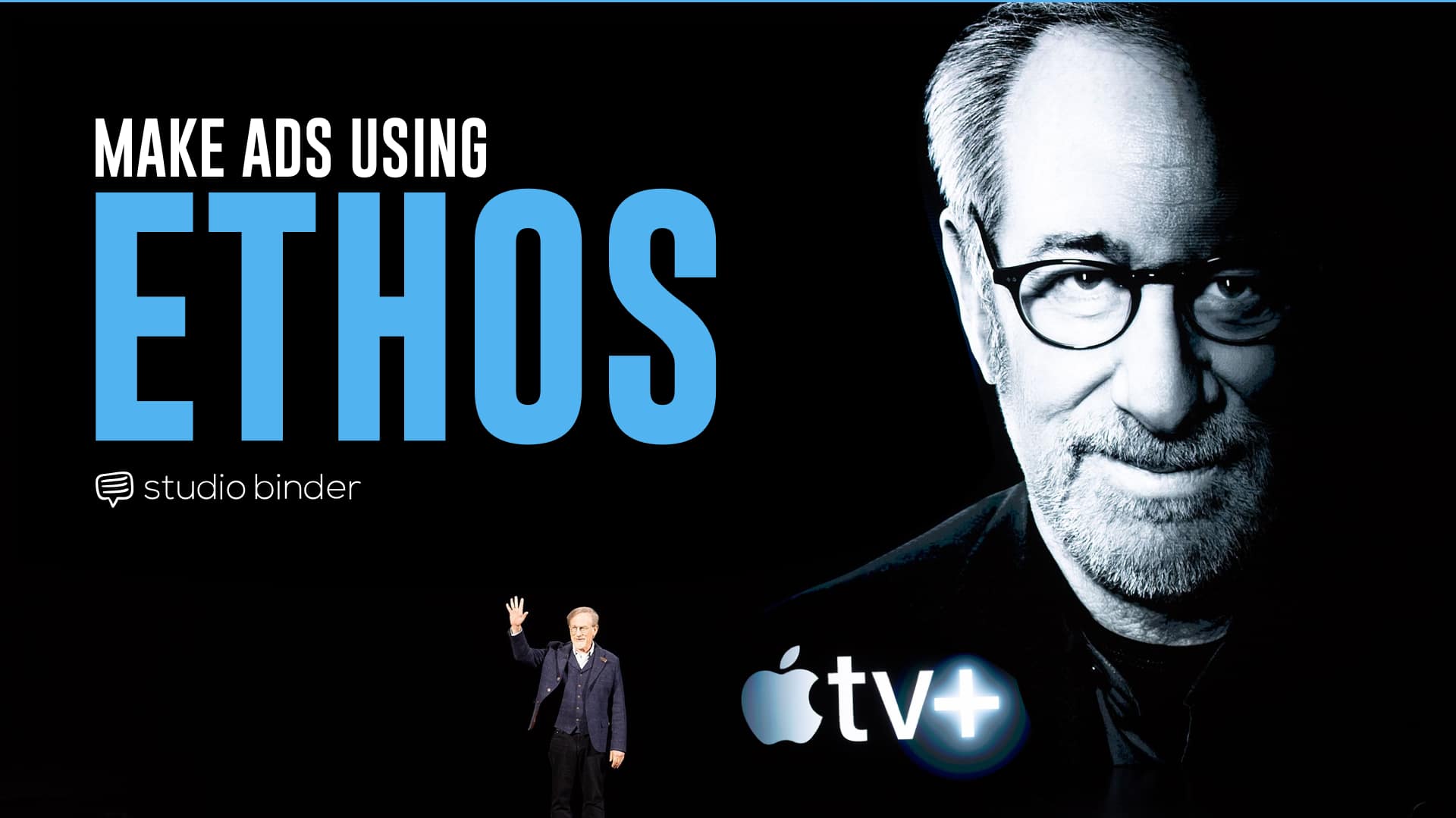Advertising has become an integral part of modern marketing strategies, and one concept that plays a crucial role is ethos ad. Ethos, derived from the Greek word meaning "character," is a persuasive appeal that relies on the credibility, trustworthiness, and authority of the speaker or brand. In the world of advertising, ethos ad strategies aim to build trust and establish a connection with the audience by showcasing the expertise and reliability of the brand.
As consumers grow more skeptical of traditional advertising methods, brands must find innovative ways to connect with their audience. Ethos ad techniques allow companies to create campaigns that resonate on a deeper level, emphasizing authenticity and trustworthiness. This article delves into the concept of ethos in advertising, offering insights into its importance and practical applications.
By the end of this guide, you'll have a comprehensive understanding of how ethos ad strategies can elevate your marketing efforts, build brand loyalty, and drive meaningful connections with your target audience. Let's dive in!
Read also:Penny Noble Unveiling The Life And Legacy Of A Remarkable Personality
Table of Contents:
- What is Ethos Ad?
- Importance of Ethos in Advertising
- Ethos Ad Strategies
- Examples of Ethos Advertising
- Measuring Ethos Ad Effectiveness
- Challenges in Ethos Advertising
- Ethos vs Pathos vs Logos
- Legal and Ethical Considerations
- Future of Ethos Advertising
- Conclusion
What is Ethos Ad?
Ethos ad refers to the use of credibility, trustworthiness, and authority in advertising to persuade consumers. This approach focuses on building a strong connection between the brand and its audience by showcasing the brand's expertise and reliability. Unlike other forms of advertising that rely on emotional appeals or logical reasoning, ethos ad strategies emphasize the character and integrity of the brand.
Key Elements of Ethos in Advertising
Several elements contribute to the effectiveness of ethos ad strategies:
- Credibility: Demonstrating that the brand is knowledgeable and trustworthy in its field.
- Authority: Establishing the brand as a leader or expert in its industry.
- Trustworthiness: Building a reputation for honesty and reliability through consistent messaging and actions.
Importance of Ethos in Advertising
In today's competitive market, building trust and credibility is essential for long-term success. Ethos plays a vital role in advertising because it helps brands:
- Establish a strong connection with their audience.
- Differentiate themselves from competitors.
- Enhance brand loyalty and customer retention.
Consumers are more likely to engage with brands that they perceive as trustworthy and authoritative. By incorporating ethos ad strategies into their campaigns, companies can create lasting impressions and foster meaningful relationships with their audience.
Ethos Ad Strategies
Implementing effective ethos ad strategies requires a deep understanding of your target audience and the values they hold. Here are some practical approaches to consider:
Read also:Fizzics Net Worth A Comprehensive Guide To Their Financial Success
- Utilize Expert Endorsements: Partner with industry experts or influencers to lend credibility to your brand.
- Showcase Testimonials: Highlight positive feedback from satisfied customers to demonstrate reliability.
- Highlight Corporate Social Responsibility (CSR): Emphasize your brand's commitment to ethical practices and community involvement.
Building Authority Through Content
Creating high-quality, informative content is another effective way to establish authority in your industry. By sharing valuable insights and expertise, your brand can position itself as a thought leader and build trust with its audience.
Examples of Ethos Advertising
Several successful brands have effectively utilized ethos ad strategies to build trust and credibility with their audience. For example:
- Apple: Apple consistently showcases its expertise in technology and design, positioning itself as a leader in the industry.
- Patagonia: Patagonia emphasizes its commitment to environmental sustainability, appealing to eco-conscious consumers.
- Tesla: Tesla leverages its reputation for innovation and cutting-edge technology to establish itself as a pioneer in the automotive industry.
Case Study: Nike's "Dream Crazy" Campaign
Nike's "Dream Crazy" campaign featuring Colin Kaepernick is a prime example of ethos ad in action. By aligning itself with a controversial yet influential figure, Nike demonstrated its commitment to standing up for social justice and equality. This campaign resonated with consumers who shared similar values, reinforcing Nike's position as a trusted and authoritative brand.
Measuring Ethos Ad Effectiveness
To determine the success of your ethos ad strategies, it's essential to track key performance indicators (KPIs) such as:
- Brand awareness and recognition.
- Customer trust and loyalty metrics.
- Social media engagement and sentiment analysis.
Regularly analyzing these metrics will help you identify areas for improvement and refine your ethos ad strategies over time.
Challenges in Ethos Advertising
While ethos ad can be a powerful tool, it also presents certain challenges. Some common obstacles include:
- Building Credibility: Establishing trust and authority takes time and consistent effort.
- Maintaining Consistency: Ensuring that all marketing efforts align with the brand's values and messaging.
- Adapting to Changing Consumer Expectations: Staying relevant in an ever-evolving marketplace.
Overcoming Ethos Ad Challenges
To overcome these challenges, brands should focus on:
- Developing a clear and consistent brand identity.
- Engaging with their audience through meaningful interactions.
- Staying informed about industry trends and consumer preferences.
Ethos vs Pathos vs Logos
Understanding the differences between ethos, pathos, and logos is essential for crafting effective advertising campaigns. While ethos focuses on credibility and trustworthiness, pathos appeals to emotions, and logos relies on logical reasoning. A successful campaign often incorporates elements of all three approaches to create a well-rounded and persuasive message.
When to Use Ethos in Advertising
Ethos ad strategies are particularly effective in industries where trust and credibility are paramount, such as healthcare, finance, and technology. By emphasizing the brand's expertise and reliability, companies can build lasting relationships with their audience and differentiate themselves from competitors.
Legal and Ethical Considerations
When implementing ethos ad strategies, it's crucial to adhere to legal and ethical guidelines to maintain consumer trust. This includes:
- Ensuring all claims and endorsements are truthful and substantiated.
- Avoiding misleading or deceptive practices.
- Respecting consumer privacy and data protection laws.
By prioritizing transparency and integrity, brands can build a reputation for ethical advertising and strengthen their ethos ad efforts.
Future of Ethos Advertising
As technology continues to evolve, the future of ethos advertising looks promising. Advances in artificial intelligence, data analytics, and personalized marketing will enable brands to create more targeted and effective ethos ad campaigns. Additionally, the growing emphasis on corporate social responsibility and ethical practices will further reinforce the importance of ethos in advertising.
Trends to Watch
Some emerging trends in ethos advertising include:
- Increased focus on sustainability and environmental responsibility.
- Greater use of user-generated content to build authenticity.
- Integration of virtual and augmented reality to enhance engagement.
Conclusion
Ethos ad plays a critical role in modern advertising, helping brands build trust, establish authority, and create meaningful connections with their audience. By implementing effective ethos ad strategies and staying informed about industry trends, companies can enhance their marketing efforts and achieve long-term success.
We invite you to share your thoughts and experiences with ethos ad in the comments below. Additionally, feel free to explore other articles on our site for more insights into marketing and advertising strategies. Together, let's continue the conversation and elevate the standards of ethical advertising!

